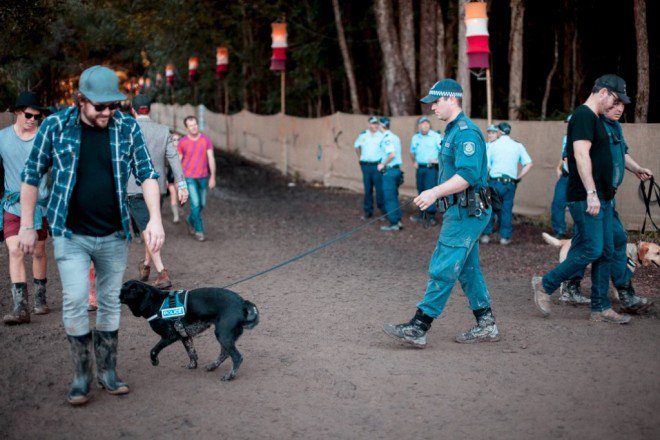Everybody’s On Drugs, So Let’s Stop Pretending Otherwise

Most people take drugs. From our morning coffee, to our wind down wine, to the occasional line or puff for a good time. Illicit drug use is a majority experience and the majority of that is unproblematic. It’s common amongst conventional, successful, and privileged people. And most common amongst rich, university educated young people.
The paper-thin line that separates legal and illicit substances is as confounding as it is cruel; the law deems convicted illicit drug users criminals, so we treat them as such. We use demeaning labels, like ‘junkie’ and ‘deadbeat addicts’, to separate them from the nice people who take drugs.
Applying criminal penalties to people who possess and use drugs causes more much more harm than it prevents. It makes criminals of people who aren’t, leads to the stigmatisation of people who use drugs, and creates barriers to treatment and rehabilitation. Our government refuses to reshape policy to respond to evidence and statistics, outcries from alcohol and drug experts, and needless drug related deaths. So what is the basis of our drug policy?
What Needs To Change
In Victoria alone, there have been four previous amendments to the Drugs, Poisons and Controlled Substance Act 1981 since 2010. Each change claimed to reduce or prevent drug-related harms in the community. And yet there remains no evidence that these interventions have been effective at reducing drug-related harms in the community.
Australia’s drug policy is outrageously flawed and outdated, and it’s dragging people who use drugs down with it. Drug use can be safer through standard dosages, transparent labelling and no contaminants. Drug use can be as positive as possible by decriminalising and de-stigmatising people who use drugs and instead addressing the drivers of problematic drug use. Drug use can be more ethical by taking drug profits from organised crime and funnelling them into services like schools and health care, and promoting personal responsibility among people who use drugs. Drug use can be more honest if we provide drug and health education that teaches the pleasures and excitement alongside the potential harms of use.
The evidence shows that Australians love consuming drugs; since 2014 we have had some of the highest proportion of recreational drug users in the world. At the same time, arrests have been steadily rising for the last decade to more than 90,000 arrests per year. About two thirds of those — more than 60,000 arrests each year — are for cannabis use. With poor, marginalised, and street based drug users bearing the brunt of the force and nice people afforded the privilege of legal representation and benefit of the doubt.
The war on drugs is a very real one fought with guns, jails, and tragic deaths. It seeps into our everyday lives with dangerous misconceptions and contaminated products. But what can the nice people do to combat that?
The Problem With “Coming Out” As A Drug User
A growing trend to ‘come out’ publicly as a person who uses drugs is problematic as it implies that there is somewhere to ‘hide’ drug use in the first instance. Nice people can conceal their drug deals behind Wickr usernames and opt for delivery to their homes, rather than having to conduct deals out in the open. Whereas street-based drug use and purchases are a phenomenon of poor and marginalised peoples’ lack of housing and lifestyle privilege.
Public admissions of drug use are an entitlement afforded to few and are usually stated after the fact. Listicles regularly circulate showcasing ‘successful people who’ve used drugs’, implying mutual exclusivity, implying it’s not normal to be successful and also use drugs.
There remains the quandary of challenging the stigma of drug use with personal declarations, but having little control over how that information is used about, and potentially, against you. Honest admissions of drug use can create a lasting impact on a more controlled scale. Sincere conversations, at the right time, with members of your family, friendship circle, and communities provide opportunities to overcome long-held misconceptions about illicit substances and the effects they have had on your life.
The use of drugs is as varied as it is common, which is part of what makes the stigma of use so damaging. People who choose to use drugs, especially if they are poor or have a disability, should not have to provide justification for their use. Remedial benefits, pleasure, and fun are well documented side-effects of personal drug use.

What Can We Do?
In 2017, ‘Reefer Madness’ should be a reaction to the fact that cannabis still hasn’t been decriminalised, let alone regulated, in Australia. Meanwhile in the US state of Colorado, the enormous tax windfall from legal cannabis sales will be spent on health programs in public schools, housing for at-risk populations, and treatment programs to the address opioid crisis.
If stigma is so entrenched, policies and politicians so out of touch, and drug use so ubiquitous, then again, what can the average punter do to make a lasting impact on this complicated landscape, without potentially complicating their lives?
Nice people who use drugs can advocate that drug use should not be a crime by voting for political parties with a drug law reform policy platform. They can publicly support the idea that drug use should not be a crime, pointing to Portugal as a successful, living model of decriminalisation. Nice people can also donate their time and money to organisations that are fighting against blanket drug prohibition, stigmatisation of people who use drugs, and better drug policy.
—
Nevena Spirovska is a political and social change campaigner based in Melbourne. Her activism is centred around drug-law reform, gender equality, and homelessness advocacy. She’ll be attending Junket 2017.



